Climate
-
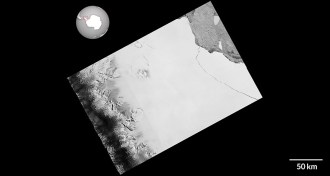 Earth
EarthDelaware-sized iceberg breaks off Antarctic ice shelf
An iceberg about the size of Delaware splintered from the Larsen C ice shelf in one of the largest calving events ever recorded.
-
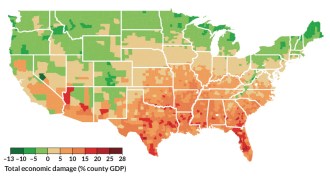 Climate
ClimateClimate change could exacerbate economic inequalities in the U.S.
Counties across the United States won’t all pay the same price for climate change, a new simulation predicts.
-
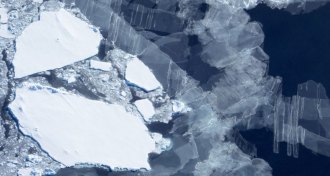 Earth
EarthBattering storms caused Antarctic sea ice to shrink at record pace
Unusually intense storms could explain why Antarctic sea ice shrank to its smallest observed extent this year.
-
 Climate
ClimateReaders question climate’s freshwater effects
Warming lakes, windmills for the Arctic, mosquito control and more in reader feedback.
-
 Climate
ClimateClimate change might help pests resist corn’s genetic weapon
Rising temperatures may allow pests to eat corn that is genetically modified to produce an insect-killing toxin.
By Susan Milius -
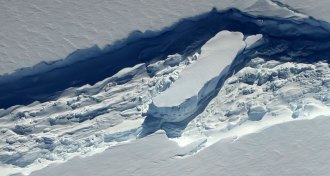 Earth
EarthAntarctica’s Larsen C ice shelf is within days of completely cracking
The crack in Antarctica’s Larsen C ice shelf grew another 17 kilometers between May 25 and May 31, 2017 and is at risk of breaking off a massive iceberg.
-
 Climate
ClimateU.S. will withdraw from climate pact, Trump announces
President Trump announced June 1 that the United States will withdraw from the Paris climate accord.
-
 Particle Physics
Particle PhysicsReaders puzzled by proton’s properties
Readers sent feedback on under-ice greenhouses in the Arctic, the Martian atmosphere and more.
-
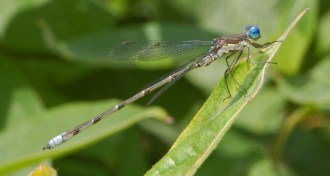 Climate
ClimateHigher temperatures could trigger an uptick in damselfly cannibalism
Experiments in the lab suggest that increases in temperature could indirectly lead to an increase in cannibalistic damselfly nymphs.
-
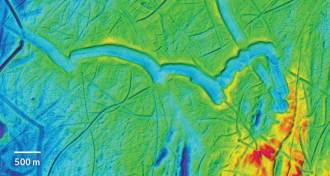 Earth
EarthStunning images reveal glacial landscapes under the oceans
The most detailed atlas of the seafloor ever compiled offers colorful imagery and ghostly glimpses of Earth’s glacial past.
By Beth Geiger -
 Earth
EarthIce particles shaped like lollipops fall from clouds
Small ice particles called ice-lollies, because of their lollipop-like appearance, can form in clouds.
-
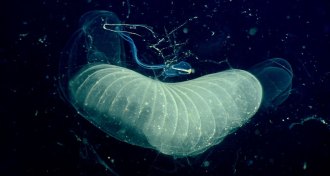 Animals
AnimalsSea creatures’ sticky ‘mucus houses’ catch ocean carbon really fast
A new deepwater laser tool measures the carbon-filtering power of snot nets created by little-known sea animals called giant larvaceans.
By Susan Milius